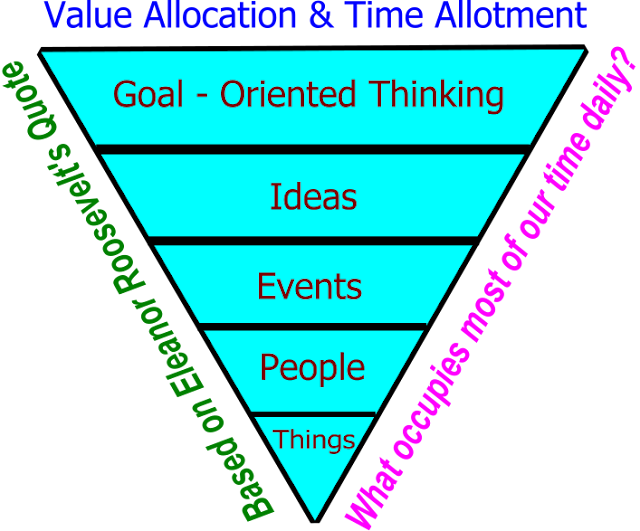Goals for Students to Achieve Higher
The strategies outlined for
setting goals look brighter and brighter as the person advances from one stage
to another.
Have we ever wondered what
happens to those people who fail to reach their goals?
Let us take our 10th standard
examination! More than 50% of the students who write the examination fail. Does
it mean that they had not set their goal to pass?
Who would set a goal to fail?
If everyone wants to succeed, why is it that only a few are called a success?
How come there are so many
people trying to teach goal-setting behavior if setting the goal were so easy?
Only a handful of those who
succeed rejoice while the rest suffer because they could not reach their goals.
Many are disappointed, frustrated, disheartened, and depressed without knowing
that they were misguided about goal-setting in the first place.
We suffer a lot because
- Our goal-setting behavior is wrong
- Our goal should never be to win the game
- Our goal should not be to get the rank
If children at school are introduced to realistic goal-setting, they would neither turn out to be overconfident nor diffident. They would know how to choose their goals systematically. At present, they have to depend primarily on borrowed goals, which they may not find it fulfilling to achieve.
Let us analyze what is wrong with the present goal-setting?
Almost all children/students fail to achieve something because we give them wrong goals like:
- You must get a distinction
- You must score first class
- You must be successful
These goals are not under anyone's control. There are too many variables that determine such outcomes. When we expect a child to surpass all the obstacles that s/he cannot control, we are being unrealistic. Thus, unrealistic expectations result in unfulfilled goals.
The difficulty arises when the goals are
- Unrealistic
- Borrowed
- Arbitrary
Goal-setting becomes more realistic when there is control over the outcome. A first-class, distinction, getting a rank, winning, success, etc. are not under anyone's control.
A goal is achievable only when it
- Is quantifiable
- Has scalability
- Becomes self-regulatory
Before goals are set, it is essential to measure the current performance. If someone asks me to jump five feet, I would be reluctant to do so because I do not know how much distance I can cover in my jump. Depending on my initial performance, I have to systematically and progressively try to reach five feet. This is where knowledge of results helps me in setting up realistic goals.
If I have to jump five feet
successfully I should keep a few inches more than five feet as my target.
Jumping four feet and eleven inches is as much a failure as jumping two feet!
As a student, my goals have
to be very clearly revised. Thus, instead of finding out how much we write in the examination, we should prepare for
- How fast we can write
- How accurate we can write
- How clear and legible we can write
Our target is to determine how efficient we are during the three-hour examination, rather than
- Whether or not we study for the whole year
- How much or how long we study
- What we study and what we remember
Lack of self-evaluation and absence of self-regulatory mechanisms have resulted in borrowed goals and consequent failures. The solution to successful goal-setting rests on learning specific skills of 'achievement motivation'.
Problems in Memory and Concentration are basically the symptoms of an underlying
- Learning Disorder
- Emotional Disorder
- Neurological Disorder
We end up with problems rather than solutions because
- We keep what works for us
- What works for us is what is easy for us
- What works for us may not be beneficial for us
- Co-operation
- Team Skills
- Social Skills












Please do not include any spam links in the comment box.